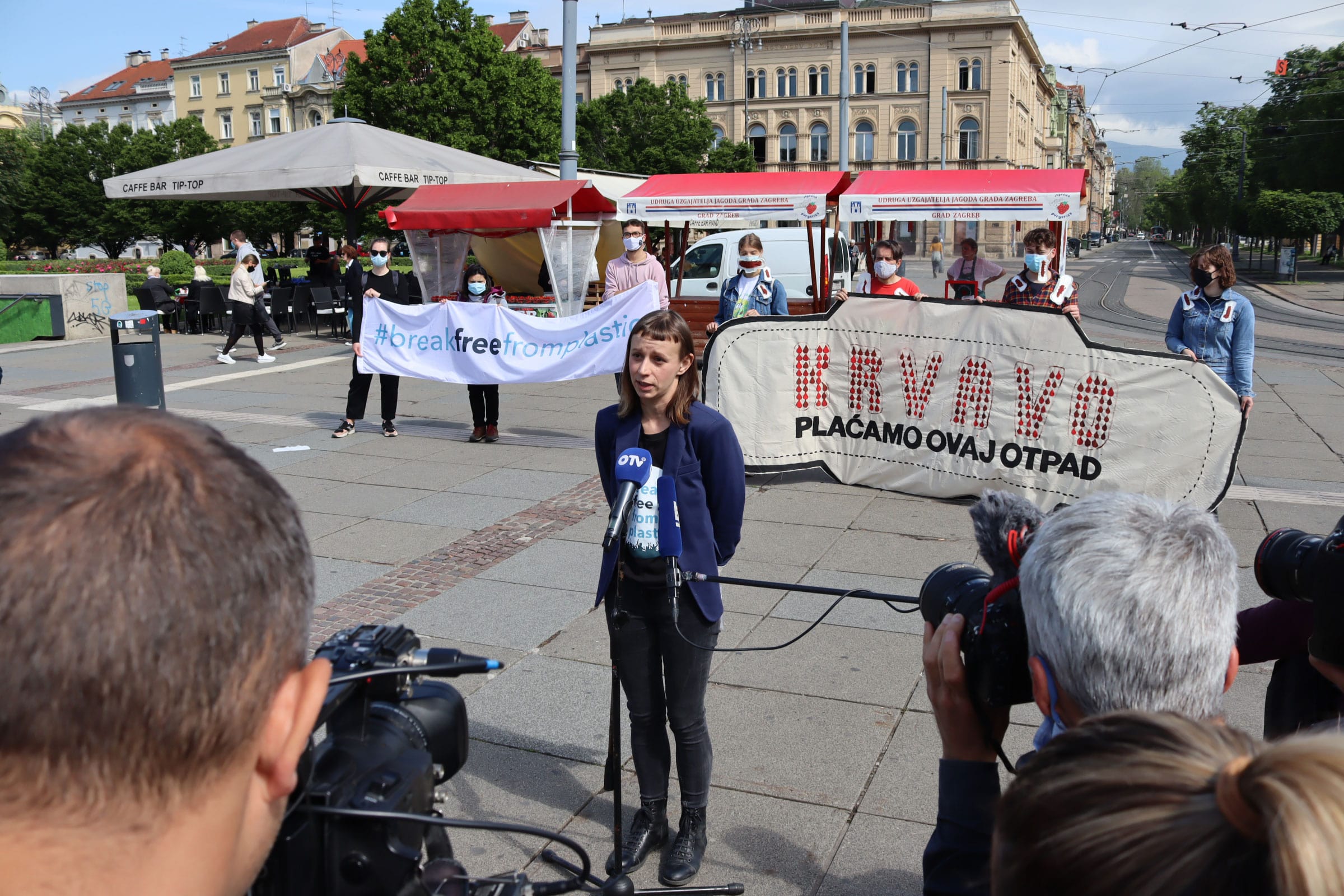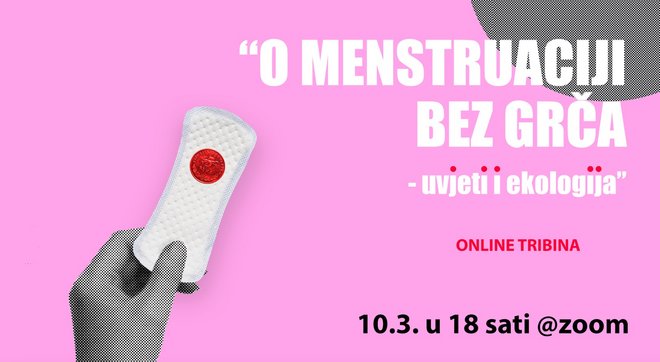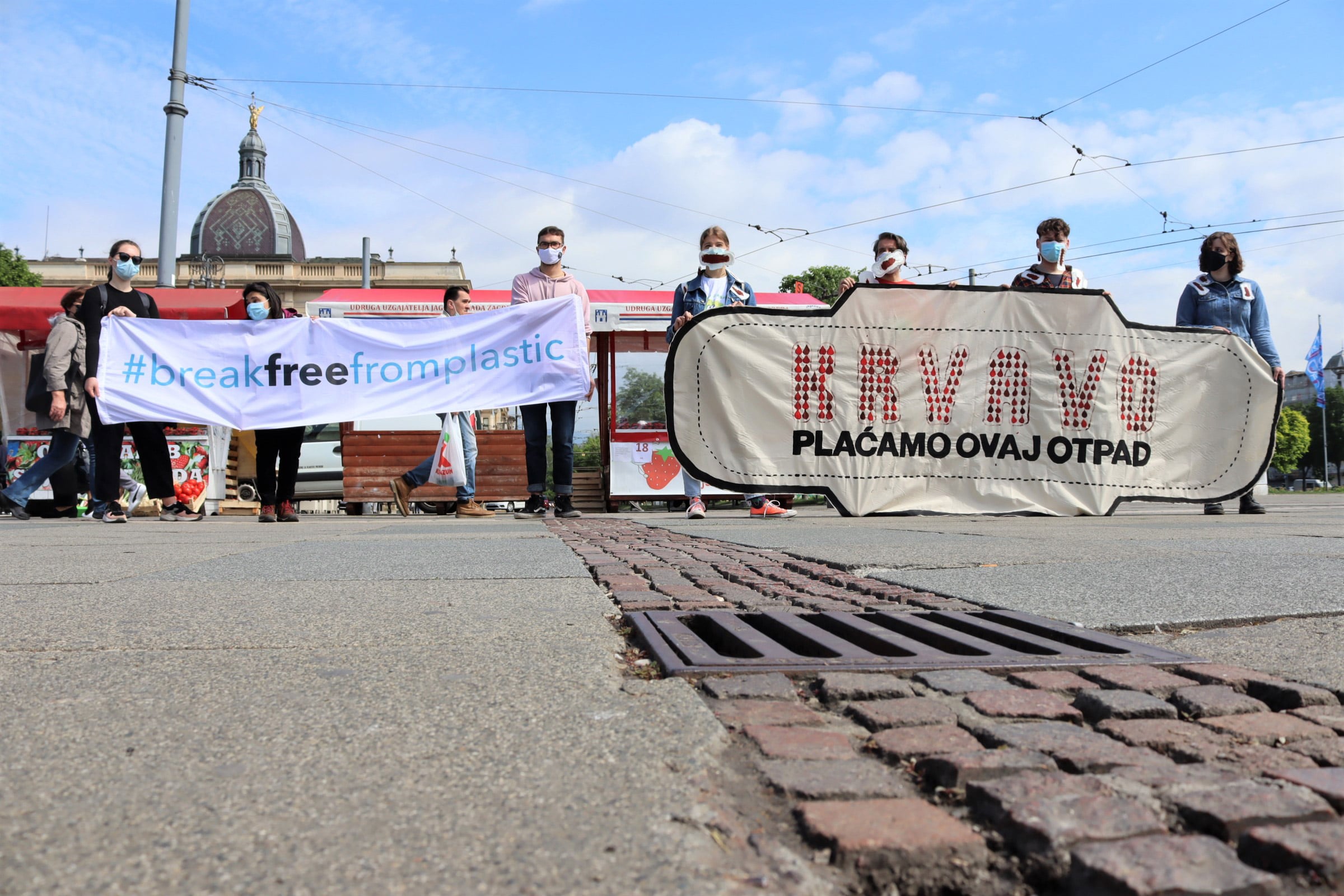My name is Ana Marija Mileusnić (or just Ana) and I work in an organisation called Zelena akcija / FoE Croatia based in Zagreb, Croatia. Zelena akcija was founded in 1990 and it is the oldest environmental organisation in Croatia.
The organisation has been a member of #breakfreefromplastic (BFFP) movement since 2017 and ever since then we have organised numerous actions, events and led successful campaigns aimed at improving the national legislative framework, as well as raising public awareness on the topic of plastic pollution while also collaborating with municipalities, clubs, festivals and events on how to cut single-use plastic on the community level. All of this work has been supported by the BFFP movement which has provided us with useful information, knowledge and resources necessary to lead successful campaigns in fighting against plastic pollution.
The important role of Zelena akcija - as one of the most influential environmental organisations on the national level - is to strengthen the anti-plastic movement by gathering environmental organisations (+ one marine institute) from all over Croatia in a non-formal anti-plastic platform. Together we share narrative and organise joint actions and campaigns to tackle plastic pollution. We find it very valuable and enriching, especially because all of the organisations that are part of the platform are using different approaches and covering different thematic areas on different scales - from very small local actions to national wide campaigns.
On the international level, apart from BFFP, we are also a member of Friends of the Earth International (FOEI) and our core values are environmental, economic, social and gender justice and intersectionality. As a member of FOEI and the School of Sustainability project, we focus on exploring power and privilege in the context of advocating for system change. The work continued through the Young Friends of the Earth Europe network where the joint effort was put into educating ourselves as member groups on applying an intersectional approach in our ways of working - starting on the way we are structured as organisations and networks, to building campaigns and collaboration between movements. We started to explore root causes of injustices which brought us closer in realising interconnectedness and understanding the importance of collaboration and solidarity in between different movements that are sharing our core values and advocating for systemic change.

Regarding the topic of plastic, our main focus on intersectionality has been through the Environmenstrual campaign where we noticed the intersection of two big global issues - gender inequality, which leads to period poverty and plastic pollution. Since we are aware of the importance of collaborating across movements, we were closely following the work of the human rights and civic participation association,Pariter. Their work over the last few years was focused on women’s rights, in particular abortion rights and period poverty. They were the first association that conducted the research on the topic of period poverty on the national level in Croatia.
Apart from generally exploring the topic, their research showed that 30% of menstruators have heard about reusable period products, but couldn’t afford them. Association Pariter used this research for advocacy work on tax reduction on period products, as well as raising awareness on the problem of lack of accessibility of period products and inadequate infrastructure.
The problem of period poverty is closely related to the massive use of single-use plastic menstrual items: these products most often contain toxic chemicals and therefore can lead to health problems of menstruators. They generate toxic waste that ends up in landfills or is burnt, which can contribute to further health and economic problems of both menstruators and non-menstruators. We saw how these problems are interconnected, so we approached association Pariter to ask them to collaborate.
Ever since then, we have been learning from each other and using our spheres of influence to reach different target groups. In 2021, we began our first activities on the topic of plastic pollution and period products and organized an online panel discussion on the topic of period poverty and environmental pollution and marked the International Women’s Day. This was followed by the public activist performance as part of the Period Poverty Week in May 2021 where we called on decision makers to recognize the problem of period poverty as a systemic issue and ensure the safe and reusable products are available and accessible to all the menstruators. The action drew a lot of media attention so we were guests at numerous radio stations and held interviews where we had the opportunity to spread awareness and have people on board with moving towards systemic solutions.

After Period Poverty Week 2021, we again put the topic in spotlight as part of Environmenstrual Week Campaign in October 2021 where we organized another panel discussion in which we thematized the period taboo and myths around reusable menstrual items, as well as presence of toxic chemicals in these products, connecting it to right to information and REACH directive.
When it comes to challenges, we were the first environmental organisation in Croatia to make a public stand on the issue of period poverty and its connection to plastic pollution. Too many environmental NGO’s are holding back on confronting the issue due to the issue being seen as an individual problem or choice and therefore it is sensitive to communicate to the public. Using the intersectional lenses in observing this problem and being aware of our own power and privilege as the oldest and the most influential environmental organisation in Croatia, we decided to step out on the issue and by doing that empower others to join the fight.
As a campaigner, I was very happy to receive support coming from our feminist sisters who also helped to stand strong against the backlash coming from radical feminist groups because of our usage of gender inclusive language, being aware that while most menstruators are women, they are not the only one who menstruate.
All this work was strongly supported by the Menstrual Task Force within BFFP. The Menstrual Task force is gathering campaigners from all over Europe where we share knowledge, resources, experience and inspiration on how to do public advocacy work on the topic. We hope this work will continue and that Zelena akcija will contribute to the aims of the task force through our work to put efforts into advocating for the better policy framework which will be supporting and empowering menstruators so they can feel educated, confident and free to make their own choices about their bodies, their purchasing power, and their periods.




